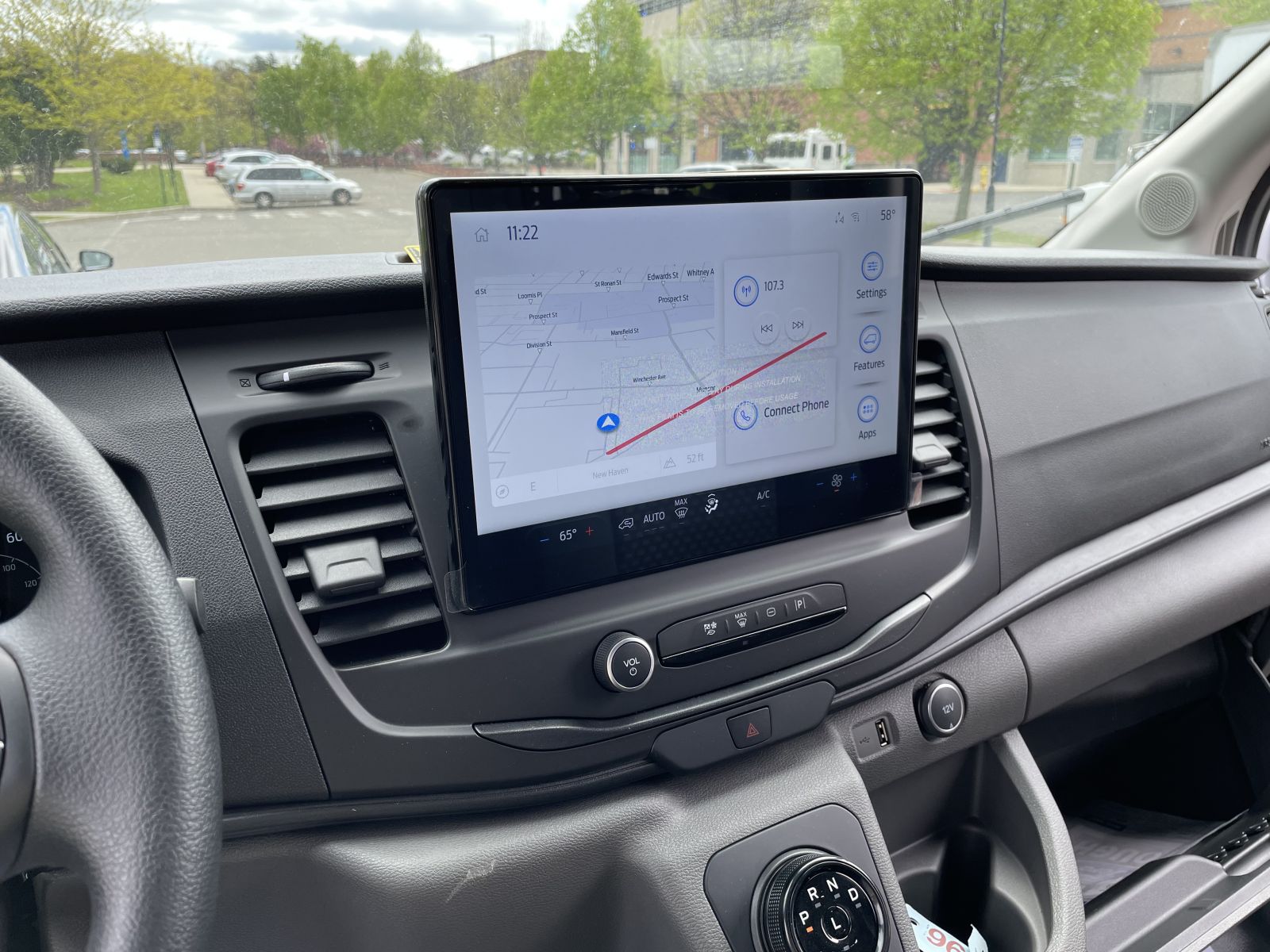
Story contributed by Yale Printing & Publishing Services
Yale University has committed to reaching net zero emissions by 2035. When Yale Printing & Publishing Services (YPPS) needed a new cargo van, we wanted to contribute to that goal. Although we knew little about electric vehicles, we wanted to investigate whether it would work for us. We had a lot of questions. Would the range meet our needs? How convenient is it to charge? How does the load capacity impact energy usage? After doing some research, we decided we wanted to make this investment and contribute to reducing our (and Yale’s) carbon footprint. To date, the results have been more positive than we could have imagined. The Ford E-Transit has already had a big impact on our operation and reduced our carbon emissions.
We use the van for copier moves and deliveries without fail. We have driven 1,352 miles so far and used 567.69 kWh of electricity. The equivalent mileage driven with a gasoline engine would have used 97 gallons of gasoline. By not using 97 gallons of gasoline, we have reduced our greenhouse gas emissions by 1,900 pounds of carbon dioxide equialent (CO2e). If we use those numbers to project five years out, we will save 8.6 metric tons of CO2e—the equivalent of what 143 tree seedlings can sequester by growing for 10 years.
In addition to being the right choice for the planet, the purchase has also benefitted our operations and bottom line. The cost to charge the van so far is $170.31. The equivalent amount of gasoline would have cost roughly $3,007—which means we have saved $2,837 in fueling costs. We no longer need to pay for oil changes, and electric vehicles receive free parking in the city of New Haven, which is another welcome savings. As one of the first departments to purchase an electric cargo van, we have become a reference for other departments that are considering making the switch to an electric vehicle. Our positive experience will impact those decisions. YPPS is proud to be helping Yale reach its sustainability goals and will add more electric vehicles in the future.
